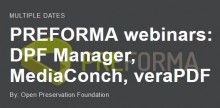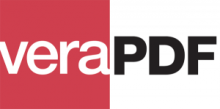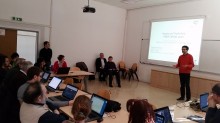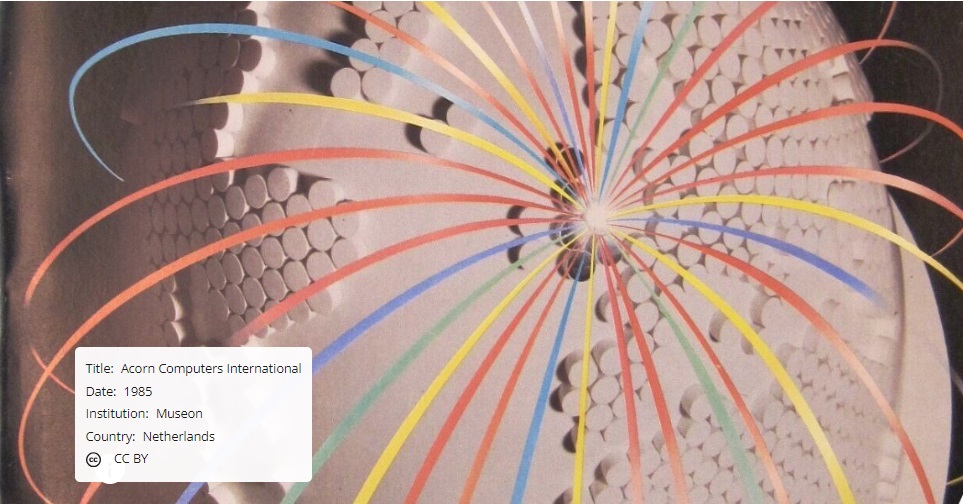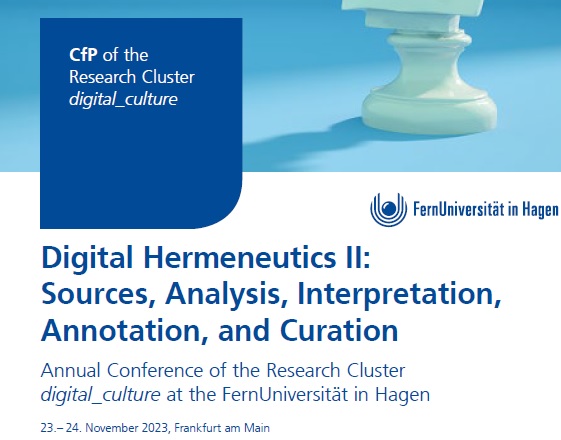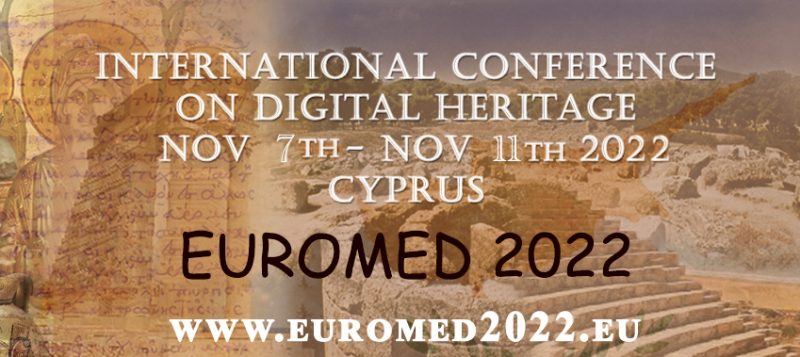
Photo credit: CC BY-SA Sebastiaan Ter Burg.
During May 2017, successful hands-on sessions and workshops have been organised by PREFORMA in several places to explain to the participants what does conformance checking mean, why is file format validation so important in long-term digital preservation, how to create their own policy profiles and how to download, install, configure and use the conformance checker to analyse their files. These workshops invite participants to bring their files and analyse them with the PREFORMA tools..
Barcelona, 10 May 2017
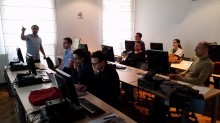 The first hands on session was organised in Barcelona with members of the Official Association of Librarians (Col·legi Oficial de Bibliotecaris i Documentalistes de Catalunya – COBDC), to show the functionalities offered by the DPF Manager to check TIFF files.
The first hands on session was organised in Barcelona with members of the Official Association of Librarians (Col·legi Oficial de Bibliotecaris i Documentalistes de Catalunya – COBDC), to show the functionalities offered by the DPF Manager to check TIFF files.
It took place in the premises of COBDC on the 10th of May and the session was conducted by Sònia Oliveras from the Girona City Council and Xavier Tarrés and Víctor Muñoz from Easy Innova. The attendees, who have large amounts of TIFF files, came mostly from local and national memory institutions and weren’t aware of any file conformance checker. The tools offered by PREFORMA project were the first solution in order to solve the file format conformance.
Amsterdam, 28 May 2017

Photo credit: CC BY-SA Sebastiaan Ter Burg.
A second hands-on session was organised in Amsterdam in the framework of The Reel Thing XL workshop, focusing on the challenges of using FFV1 and MKV for film digitisation.
Presentations were delivered by Erwin Verbruggen (Netherlands Institute of Sound and Vision), introducing PREFORMA and the AV challenges, Jérôme Martinez (MediaArea.net), introducing MediaConch, Eva Verdoodt & Noortje Verbeke (VIAA), presenting their film digitisation workflow and considerations using FFV1/MKV, and Reto Kromer (reto.ch), presenting the last developments on the FFV1 standardisation as far as colour information for films is concerned.

Photo credit: CC BY-SA Sebastiaan Ter Burg.
The session was closed by a panel discussion guided by the British Film Institute on the practical thresholds implementing FFV1/MKV in film digitisation. Basically the importance of the standardisation effort was discussed, as well as the posibilities for crowdfunding further development of the standards and the MediaConch tool.
The workshop was attended by 25-30 participants, mainly from film archives and film scanning services, including British Film Institute, Irish film institue, INA, Catalunyan Film Archive, Austrian Film Archive, German Film Archive, VIAA, Sound & Vision, Picturae Digitisation Services.
Quedlinburg, 29 May 2017
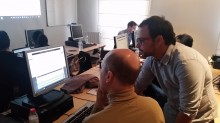 The third hands-on session was organised in Quedlinburg by SPK in cooperation with the Museum Association of Saxony-Anhalt, focusing again on the DPF Manager.
The third hands-on session was organised in Quedlinburg by SPK in cooperation with the Museum Association of Saxony-Anhalt, focusing again on the DPF Manager.
The session was embedded in a general meeting of the Working Group Digitisation of the Museum-Association (AG Digitalisierung MVSA). There were 22 participants mainly from medium-sized and small museums – museum-directors, curators, IT-people. There was a general introduction on file-formats for digital preservation, especially for text and images, followed by an introduction to PREFORMA and the tools created in the project.
Participants brought their own laptops and installed the DPF Manager. After that the functionalities available in the GUI version were explained and participants were able to try both the conformance checker and the policy checker.
In the end the participants agreed that the DPF Manager is a valuable tool for their digitisation-work, not only for digital preservation but also for checking image-files produced by external companies in the framework of a digitisation project of a museum.
Stockholm, 30 May 2017
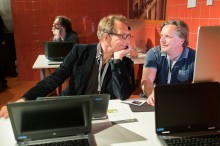
Photo credit: CC BY-SA Sebastiaan Ter Burg.
Finally, the last hands-on session organised by PREFORMA in May was hosted at the National Archives of Sweden and it focuses on PDF/A and on the use of veraPDF conformance checker. The session brought together 21 persons working with archives and records management issues at public and private memory institutions, state and municipal agencies and organisations, and in SMEs.
The Riksarkivet team made an introduction to the seminar followed by a brief walkthrough of the PDF/A format. The hands-on part was divided into two main blocks: the first one focusing on conformance checking, the second one on policy checking. Each block began with a demonstration by the Riksarkivet team, and was then followed by practical exercises where the participants used veraPDF to check the conformance and policy respectively of their sample files.
The seminar ended with an informal discussion on the results of the seminar and whether the participants initial expectations were met. These expectations was mainly about learning more about PDF/A to better understand its “pros and cons” but also to learn about validation and the PREFORMA conformance checker. The overall feedback from the participants was very positive and participants were interested to continue to follow the developments of the PREFORMA project , possibly as part of a Swedish informal reference group.
Additional workshops and seminars will be organised by the PREFORMA partners after Summer. Stay tuned at www.preforma-project.eu!




